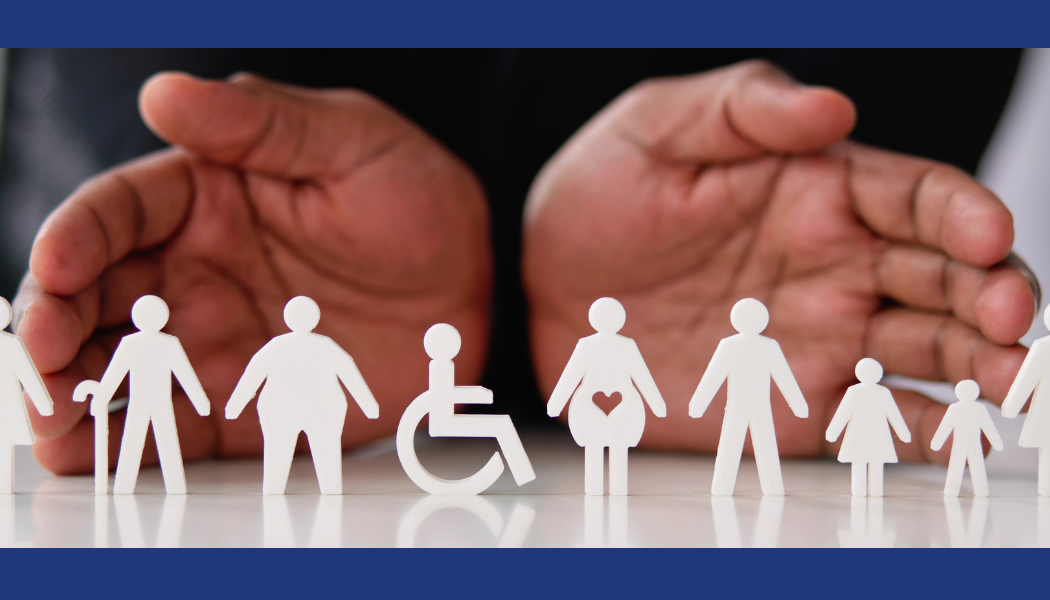The United Nations International Day of Persons with Disabilities is held annually on December 3 to “promote an understanding of disability issues and mobilize support for the dignity, rights and well-being of persons with disabilities” (UN Proclamation, 1992). It also seeks to build awareness of the benefits of integrating persons with disabilities in all aspects of political, economic, social and cultural life. As you will read, there is still much work to be done.
What is the International Day of Persons with Disabilities (IDPD)?
IDPD is a day of celebration, optimism, education and action.
At BC CRN, we celebrate our diverse communities and everyone’s contributions, including those with all levels of abilities. We are optimistic about the future and are working with our CRN partners to support persons with disabilities to participate fully in society by advocating for services, supporting service providers, and educating the broader community.
We encourage our members and service providers to take action wherever and however they can. This might mean providing personal or educational services to clients, advocating for better transportation or workplace access in their communities, or addressing discrimination when it occurs.
The UN does not own IDPD; everyone owns it. By working within our communities, we can normalize having a disability and erase stigma in our society. That starts by knowing more about Canadians with disabilities.
Disabilities in Canada
According to Statistics Canada, 27 percent of Canadians over age 15 live with a disability. Disability rates increase with age; two in five adults are 65 and over.
Almost three-quarters of these older adults experience two or more disabilities. These include a range of challenges that include chronic pain (16.7%), flexibility (10.9%), mobility (10.6%) and mental health (10.4%). Interestingly, despite stereotypes, impaired vision or hearing and memory are all in the single-digit range.
Statistics Canada’s 2022 Canadian Survey on Disability (CSD) revealed that only half of those between 55 and 64 were likely to be employed, especially if they had higher levels of education. That cuts in half for severely disabled persons. As a result, many earn less than $25,000 a year.
Barriers to Well-being
Poverty has a severe impact on persons with disabilities. Unmet needs include medications, healthcare services (such as physiotherapy or counseling), personal aids and devices (e.g., canes and walkers), specialized software and more.
These barriers substantially impact Canadians’ physical, mental and economic wellness. Recent media about airline transportation reveals a continued lack of awareness about the importance of mobility aids, for example. Behind the public curtain, people with disabilities often live in poverty, have unmet needs or lack the resources for education, advocacy or other important services.
The UN Call to Action for 2024
Globally, the UN reported in its Disability and Development Report 2023 that the world has stalled or regressed in meeting its 17 sustainable development goals (SDGs) to fulfill all human rights for persons with disabilities since they were established in 2015. SDGs address poverty, inequality, hunger, disease, gender equality, conflict and disaster.
In a statement leading up to the 2024 International Day of Persons with Disabilities meetings in New York, the UN call to action includes:
- Promoting the leadership of persons with disabilities in all areas of life.
- Ensuring the inclusion of persons with disabilities in all aspects of society.
- Increasing the participation of persons with disabilities in decision-making processes.
- Raising awareness of the rights of persons with disabilities.
- Celebrating the achievements of persons with disabilities.
Increasing Human Rights for Persons with Disabilities in BC
Disability Alliance BC (DABC) supports persons with disabilities “to live with dignity, independence and as equal and full participants” in their communities. DABC provides direct services, community partnerships, advocacy, research and publications.
The DABC website provides a wealth of information to help communities understand and improve accessibility. The organization offers financial workshops across BC, accessibility project grants and other services to help increase the participation of all people in BC. DABC also published a dozen short publications to support creating an inclusive environment during emergency planning, such as including accessible toilets and reception centers and communicating with people with various disabilities.
The British Columbia Aboriginal Network on Disability Society (BCANDS) is an internationally recognized, award-winning non-profit. BCANDS works with Indigenous individuals, communities and organizations to address the impacts of disabilities, which are exacerbated by the effects of colonization. The Indigenous population of Canada experiences a disability rate much higher than that of the general population, at approximately 30 to 35 percent. BCANDS offers assistance through education and employment programs, advocacy, research and more.
Inclusion BC advocates for the rights of British Columbians with intellectual disabilities, their families and organizations that serve them. The provincial office provides advocacy, education, resources and support to break down barriers and build inclusive communities.
Community Living BC is another resource for persons with developmental disabilities, autism and FASD. The organization has centres throughout the province. In addition to direct services, Community Living works on numerous issues, including housing and accessibility.
Other Resources for People with Disabilities
Advocacy and support
- BC People First
- Disability Alliance
- Family Support Institute
- Find Support BC
- Inclusion BC
- Plan Institute
- Representative for Children and Youth
Information and services
- Disability assistance
- Supports and services for people with disabilities
- Special needs supports for families
Spread the Word About International Day of Persons with Disabilities!
Everyone can join on social media by promoting this year’s theme: “United in action to rescue and achieve the Sustainable Development Goals for, with and by persons with disabilities.”
- Follow the UN on Twitter @UN_Enable, @UNDESASocial, @UNDESA and on Facebook at https://www.facebook.com/undesasocial
- Use #DisabilityDay and #IDPD as the main hashtags
- Other hashtags: #EveryoneIncluded, #GlobalGoals and #CRPD
Explore our website to learn more about BC CRN or connect with your local CRN for more information or resources.
